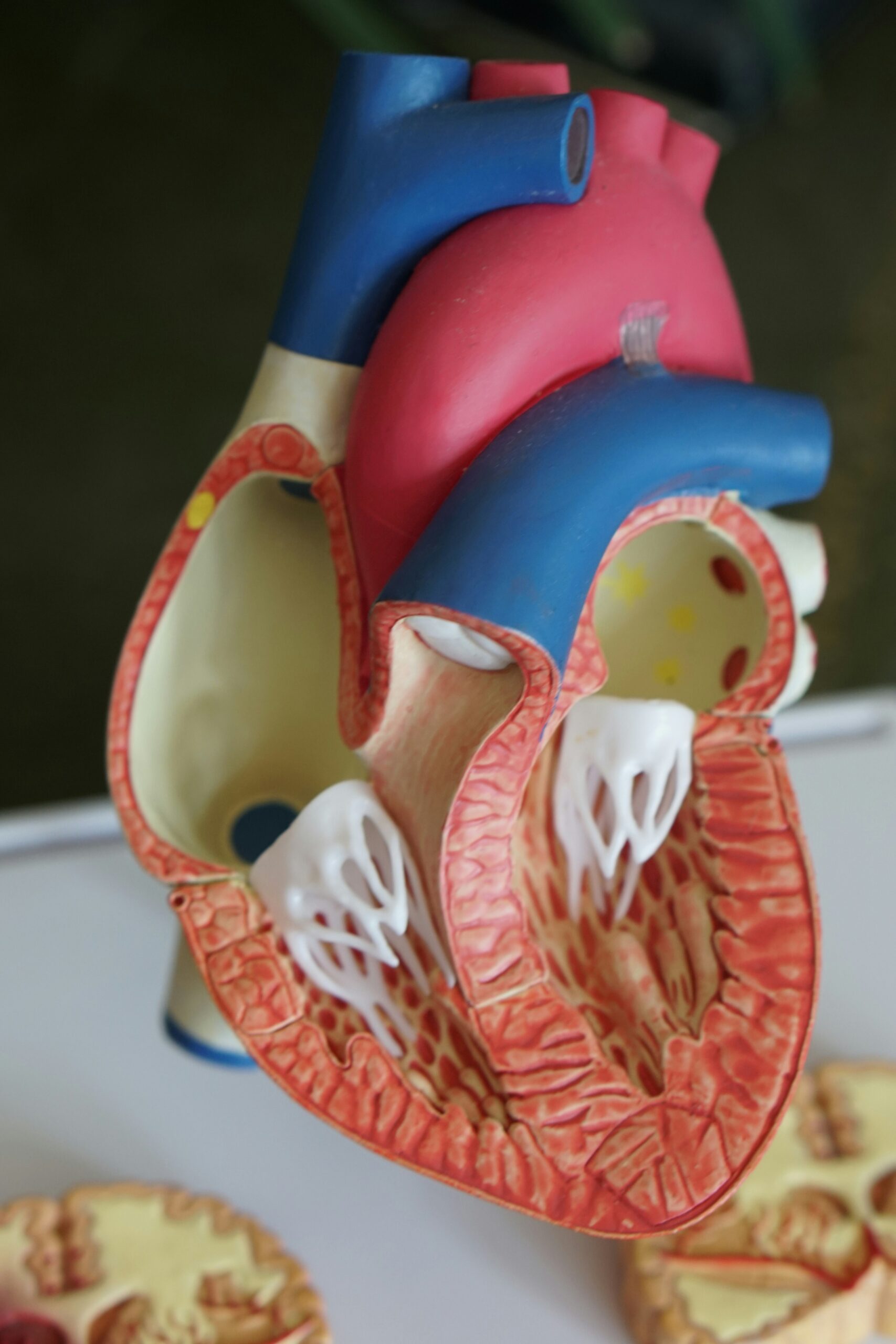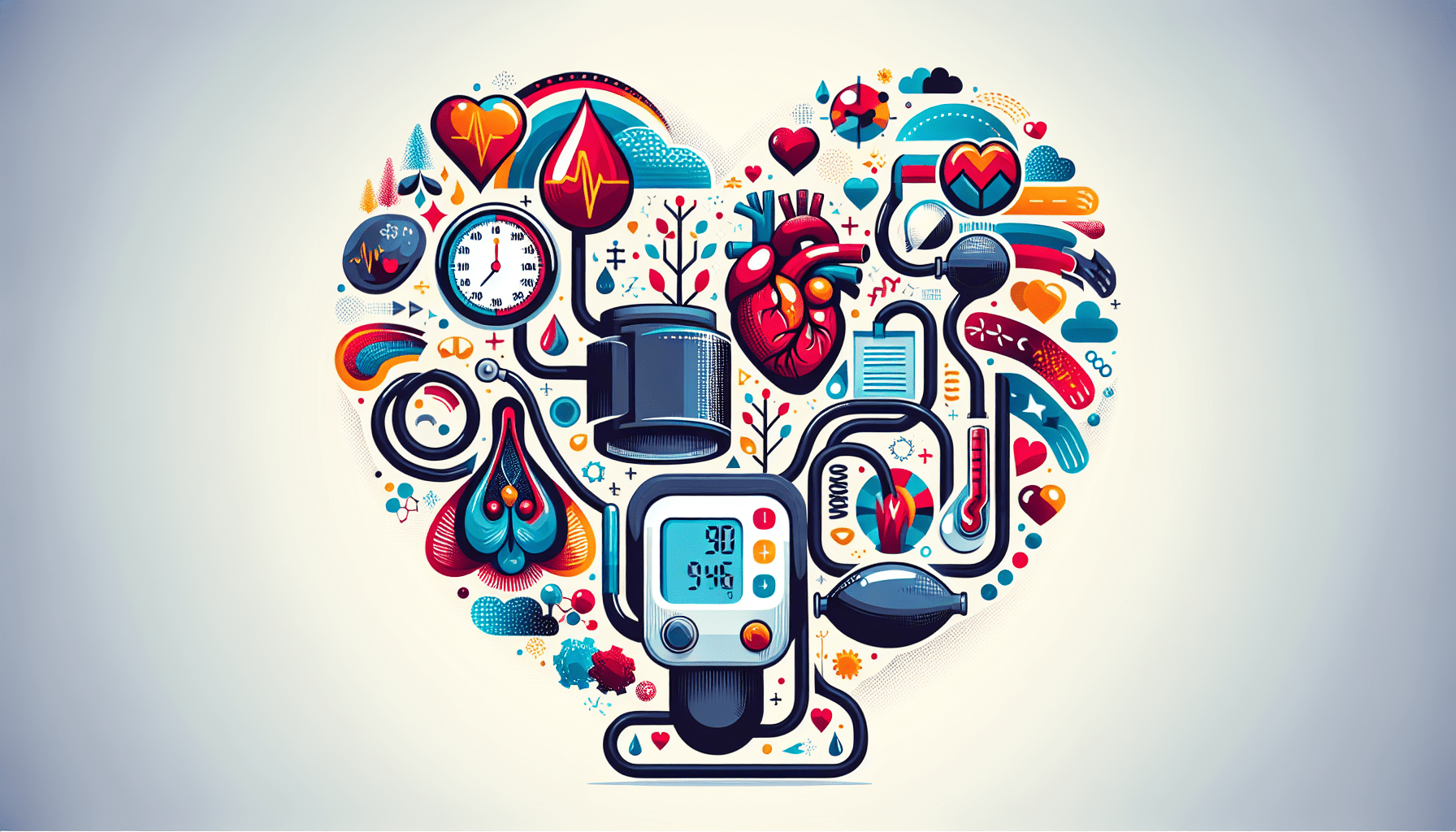Have you ever wondered about the potential health problems that can arise from having high blood pressure? In this article, we will explore the various complications and risks that are commonly associated with this condition. From heart disease to kidney damage, understanding these potential health issues can help you take proactive steps in managing your blood pressure and maintaining a healthier lifestyle. So, sit back, relax, and let’s dive into the world of health problems associated with high blood pressure!

Cardiovascular Diseases
Heart Attack
A heart attack, also known as myocardial infarction, occurs when the blood supply to the heart muscle is blocked, usually due to the buildup of fatty deposits called plaques in the arteries. High blood pressure is a major risk factor for heart attacks, as it can cause the arteries to become narrow and restrict blood flow. When the blood flow is interrupted, the heart muscle is deprived of oxygen, leading to severe chest pain, shortness of breath, and in extreme cases, death. It is important to note that while high blood pressure increases the risk of a heart attack, it is not the sole cause. Other lifestyle factors such as smoking, obesity, and a sedentary lifestyle also contribute to the development of heart attacks.
Stroke
A stroke occurs when there is a disruption of blood supply to the brain, either due to a blockage in the blood vessels (ischemic stroke) or due to bleeding in the brain (hemorrhagic stroke). High blood pressure significantly increases the risk of both types of strokes. When blood pressure is elevated, the blood vessels become weak and may burst, causing bleeding in the brain. Additionally, the narrowed arteries resulting from high blood pressure increase the risk of blood clots, which can block blood flow to the brain. Strokes often lead to serious and long-term complications, such as paralysis, difficulty in speaking, and even death. Therefore, it is crucial to manage blood pressure effectively to minimize the risk of stroke.
Heart Failure
Heart failure occurs when the heart is unable to pump enough blood to meet the body’s demands. High blood pressure can cause the heart muscle to become thick and stiff, making it difficult for the heart to relax and fill with enough blood. This extra strain on the heart can weaken it over time, leading to heart failure. Symptoms of heart failure include fatigue, shortness of breath, fluid retention, and swollen ankles or legs. It is important for individuals with high blood pressure to closely monitor their condition and take steps to manage their blood pressure to reduce the risk of heart failure.
Kidney Disorders
Chronic Kidney Disease
Chronic kidney disease (CKD) refers to the progressive loss of kidney function over time. High blood pressure is one of the leading causes of CKD. When blood pressure is consistently high, it puts strain on the small blood vessels in the kidneys, causing them to narrow and become damaged. This can impair the kidneys’ ability to filter waste products and fluid from the blood effectively. As CKD progresses, it can lead to complications such as kidney failure, anemia, bone disease, and cardiovascular problems. Early detection and effective management of high blood pressure are essential for preventing or slowing down the progression of CKD.
Kidney Failure
Kidney failure occurs when the kidneys lose their ability to function adequately, resulting in the accumulation of waste products, electrolyte imbalances, and fluid retention in the body. High blood pressure is a major risk factor for kidney failure, as it damages the delicate blood vessels in the kidneys and impairs their ability to filter waste effectively. Kidney failure requires either dialysis or a kidney transplant to sustain life. Managing blood pressure through lifestyle changes, medication, and regular monitoring can play a crucial role in reducing the risk of kidney failure.
Eye Complications
Hypertensive Retinopathy
Hypertensive retinopathy refers to damage to the blood vessels in the retina, the light-sensitive tissue at the back of the eye. High blood pressure can cause the blood vessels in the retina to narrow, leak, or even burst, leading to vision problems. In the early stages, hypertensive retinopathy may not cause noticeable symptoms, but as the condition progresses, individuals may experience blurred vision, double vision, or even complete vision loss. Regular eye examinations are important for individuals with high blood pressure to detect and manage any potential eye complications.
Vision Loss
High blood pressure can also contribute to other eye conditions that can result in vision loss. One such condition is age-related macular degeneration (AMD), which is the leading cause of vision loss in older adults. Chronic high blood pressure can increase the risk of developing AMD by damaging the blood vessels that supply the eye’s macula, the central part of the retina responsible for detailed vision. Similarly, high blood pressure can also increase the risk of glaucoma, a group of eye conditions that damage the optic nerve and can lead to vision loss if left untreated. Regular eye check-ups and blood pressure management are essential for preserving eye health.
Metabolic Disorders
Diabetes
Diabetes is a chronic condition that affects the body’s ability to regulate blood sugar levels. High blood pressure and diabetes often go hand in hand, as both conditions have similar risk factors and can exacerbate one another. High blood pressure can damage the blood vessels and reduce blood flow to the pancreas, which produces insulin to regulate blood sugar. This can lead to insufficient insulin production and contribute to the development of diabetes or worsen the control of existing diabetes. Additionally, individuals with diabetes are at an increased risk of developing high blood pressure due to insulin resistance and other underlying metabolic factors. Proper management of both conditions, through medication, lifestyle changes, and regular monitoring, is essential to prevent complications.
Obesity
Obesity is a complex medical condition characterized by excessive body weight and is closely linked to high blood pressure. Obesity can lead to the development of high blood pressure through various mechanisms. Excess body weight increases the workload on the heart, leading to elevated blood pressure. Additionally, adipose tissue, or fat, releases hormones and inflammatory substances that can interfere with the normal functioning of blood vessels and contribute to hypertension. High blood pressure and obesity are also often associated with other metabolic conditions, such as diabetes and lipid abnormalities, further increasing the risk of cardiovascular diseases. By adopting a healthy lifestyle, including a balanced diet and regular physical activity, individuals can reduce the risk of high blood pressure and obesity, thereby preventing related health problems.

Sexual Dysfunction
Erectile Dysfunction
Erectile dysfunction (ED) refers to the inability to achieve or maintain an erection sufficient for sexual intercourse. High blood pressure can contribute to erectile dysfunction by damaging the blood vessels and impairing blood flow to the penis. When blood vessels are constricted or narrowed due to high blood pressure, they cannot deliver adequate blood flow to the erectile tissues in the penis, leading to difficulties in achieving or sustaining an erection. It is important for individuals experiencing erectile dysfunction to consult with their healthcare provider, as effective management of high blood pressure can often help improve erectile function and overall sexual health.
Peripheral Artery Disease
Poor Blood Circulation
Peripheral artery disease (PAD) is a condition characterized by the narrowing or blockage of the blood vessels that supply the legs, arms, stomach, or kidneys. High blood pressure puts individuals at a higher risk of developing PAD as it promotes the buildup of plaque in the arteries, leading to restricted blood flow. The reduced blood flow to the limbs can cause pain, numbness, or cramping, especially during physical activity. Poor blood circulation can also slow down the healing of wounds and increase the risk of infections. Effective management of high blood pressure, including lifestyle changes and medication, can help prevent the progression of peripheral artery disease and improve blood circulation.

Headaches and Migraines
Headaches, including migraines, can be triggered or worsened by high blood pressure. While high blood pressure alone may not directly cause a headache or migraine, it can increase the risk of experiencing them. When blood pressure is elevated, it puts pressure on the blood vessels in the brain, leading to headaches. Additionally, high blood pressure is often associated with stress, which can also trigger headaches or migraines. Managing blood pressure levels through relaxation techniques, stress reduction, and appropriate medication if necessary can help alleviate headache symptoms.
Sleep Apnea
Chronic Fatigue
Sleep apnea is a sleep disorder characterized by pauses in breathing or shallow breaths during sleep. High blood pressure and sleep apnea often coexist, with each condition potentially exacerbating the other. The episodes of apnea (breathing pauses) in sleep apnea can cause significant stress on the cardiovascular system, leading to increased blood pressure levels. Conversely, high blood pressure can contribute to the development or worsening of sleep apnea by increasing the stiffness and narrowing of the airways. Sleep apnea can result in chronic fatigue, daytime sleepiness, poor concentration, and other related complications. Effective management of both high blood pressure and sleep apnea, often through lifestyle changes and the use of continuous positive airway pressure (CPAP) therapy, can greatly improve sleep quality and overall wellbeing.
Insomnia
Insomnia refers to difficulty falling asleep, staying asleep, or both, which can lead to inadequate sleep and daytime fatigue. High blood pressure is associated with an increased risk of developing insomnia. The physiological effects of high blood pressure, such as increased heart rate and blood vessel constriction, can make it challenging to relax and fall asleep. Additionally, stress, which is often linked to high blood pressure, can contribute to insomnia. It is important to address both high blood pressure and insomnia with appropriate interventions, including stress management techniques, good sleep hygiene practices, and consultation with healthcare professionals if necessary, to improve sleep quality and overall health.

Bone Loss
Osteoporosis
Osteoporosis is a condition characterized by the loss of bone density, resulting in brittle and weak bones. High blood pressure is associated with an increased risk of developing osteoporosis. Some of the medications used to treat high blood pressure, such as diuretics, can contribute to calcium loss from bones, further weakening them and increasing the risk of fractures. Additionally, high blood pressure can affect the bone remodeling process, leading to imbalances between bone formation and resorption. Regular exercise, a balanced diet rich in calcium and vitamin D, and appropriate management of high blood pressure can help reduce the risk of osteoporosis and maintain bone health.
Depression and Anxiety
Mental Health Issues
High blood pressure has been linked to an increased risk of developing mental health disorders, including depression and anxiety. The exact mechanisms behind this association are not fully understood, but it is believed that the physiological changes associated with high blood pressure, such as inflammation and hormonal imbalances, may contribute to the development of these mental health conditions. Furthermore, the stress and lifestyle limitations often associated with managing high blood pressure can take a toll on an individual’s emotional wellbeing. It is important for individuals with high blood pressure to prioritize their mental health and seek appropriate support, such as therapy or counseling, to address any depression or anxiety symptoms they may be experiencing.
